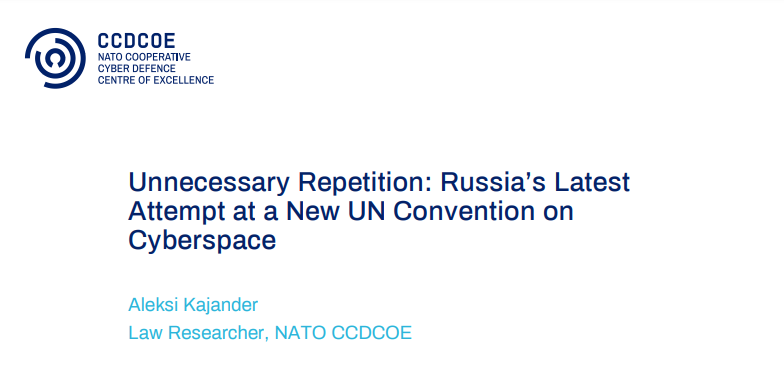If one has been following, the United Nations OpenEnded Working Group (OWEG) has concluded and there are some interesting outcomes that are explored by Aleksi Kajander. Parallel to the cyber front of Russia’s illegal war of aggression in Ukraine, conflict brews within the discussions on the cyber aspects of international law at the OEWG. Russia’s latest proposal for a legally binding convention on ensuring international information security was submitted by Russia on the 29th of June after the fourth substantive session of the OEWG. It was conspicuous, despite it being ultimately largely ignored in the Progress Report. Even if ultimately unsuccessful, such proposals serve to direct the discussion and draw attention to the proposer’s desired topics, hence they are an effective influencing tool. Russia has a long history of proposing new conventions and instruments at the United Nations, so this is nothing new; however, after its successful proposal for a UN convention on cybercrime, all such initiatives should be carefully examined. While seemingly innocuous on the surface, this proposal is akin to a Trojan horse filled with the proposer’s own interests.
